
Ga voor actuele informatie en nieuws naar onze vernieuwde website.
2009-01-22 Green Computing
Thursday January 22 2009, NLUUG will organise an event with the theme Green Computing. Lectures will be held in Dutch and English.
Topics
There will be presentations on the subject of Green Computing. Some of the topics that are addressed are:
- Reversible computing / Adiabatic logic
- Low power wireless networks
- Lessons from the embedded space
- Developments in hardware
Location
We have found a rather special location for this environmentally vision of the future, namely "Het Paradijs in Enschede". This space is best described as an indoor garden that was built from reused material with the creative zeal to make something of unique beauty. We could not have wished for a more suitable place to organise this NLUUG-day, given its green theme.
Registration
The entrance is FREE (as in free beer). The event is supported by Syntens.
To assure yourself of a place, please register by sending an email to
event-enschede@nluug.nl, including your name and (if applicable)
organisation. You will receive a reminder by email just before the
event.
PGP key-signing and CAcert certification
During the break there will be PGP key-signing and CAcert certification. More information and instructions.
Program
| 10:00 - 10:30 | Welcome with coffee and tea |
| 10:30 - 10:50 | Opening: Innoveren, kan dat goedkoper? Carlos Silva dos Santos (Syntens) |
| 10:55 - 11:25 | An energy-efficient call. Dr. ir. Lodewijk Smit |
| 11:30 - 12:00 | Small hardware saves you a lot. Mendel Mobach |
| 12:00 - 13:15 | Lunch and PGP / CAcert signing |
| 13:15 - 13:45 | Adiabatic electronics design. Rick van Rein (GroenGemak) |
| 13:50 - 14:20 | Legal limits to reverse engineering. mr. drs. Walter van Holst (Mitopics) |
| 14:20 - 14:45 | Tea |
| 14:45 - 15:15 | Save valuable battery life with Linux Power Management. Aschwin Marsman (MontaVista) |
| 15:20 - 15:50 | How green is this OLPC's XO? Marten Vijn |
| 15:50 - 17:00 | Drinks and PGP / CAcert signing |
|
Innoveren, kan dat goedkoper? Carlos Silva dos Santos (Syntens) | ||
|---|---|---|
|
Innovatie is het toverwoord op dit moment. Innoveren betekent werkzaamheden op een andere of nieuwe manier doen. Innoveren betekent ook nieuwe producten en/of diensten ontwikkelen. Overheden bedenken veel instrumenten om innovatie te stimuleren. ICT-bedrijven actief in het open source software domein zijn eigenlijk per definitie innoverend. Van welke instrumenten kunnen ICT-bedrijven, actief in het open source software domein gebruik maken? Carlos Silva dos Santos van Syntens zal kort maar krachtig antwoord en toelichting geven op bovenstaande vraag. Carlos Silva dos Santos, is innovatieadviseur en projectleider van het programma OASE. Hij is werkzaam bij Syntens, innovatienetwerk voor ondernemers, een initiatief van het Ministerie van Economische Zaken. Zijn passie is samen met MKB-ondernemers werken aan strategische concepten waarbij ICT in het algemeen en open source software in het bijzonder worden ingezet. |

| |
|
An energy-efficient call dr. ir. Lodewijk Smit | ||
|
Under the hood, complex technology is required to make a simple mobile UMTS phone call possible. Energy efficiency is often associated with low power hardware. This is not the complete story. In the software stack a lot of global cross-layer optimizations are possible at run-time, which may result in substantial energy savings. Lodewijk Smit is co-founder of Recore Systems. He received a PhD in the area of energy-efficient wireless communications. In 2005/2006 he was visiting researcher at Lucent Bell Labs in Murray Hills, NJ, USA. |
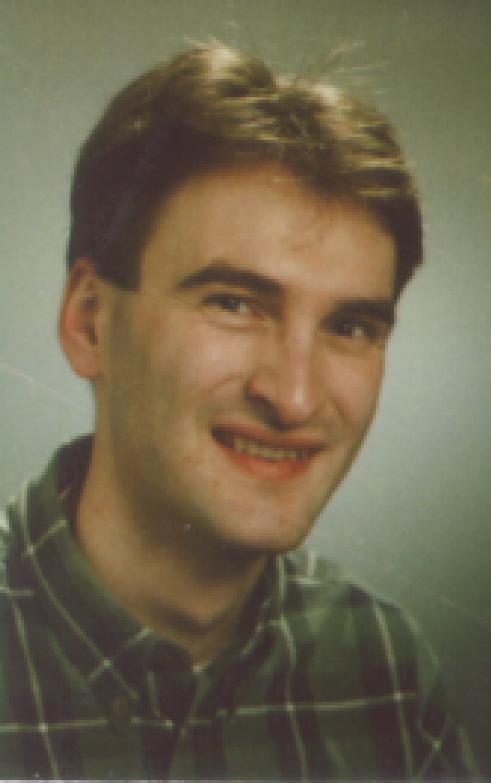 | |
|
Small hardware saves you a lot Mendel Mobach | ||
|
Small hardware can save you and everybody a lot of time, energy and headaches. These days, people tend to buy bigger, faster and mostly better. But better doesn't necesarely mean bigger. However smaller doesn't imply that either. This lecture will give you some insights in how to choose the right hardware for the right job and how you can help the environment, your energy bill and your power connectors from being overtaken by the hardware which is available these days. Mendel Mobach is a fulltime geek for Systemhouse Mobach BV. and involved in a couple community projects like NLLGG, CCC events and HAR2009, CACert server administration and a lot more. |
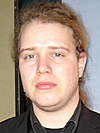 | |
|
Adiabatic electronics design Rick van Rein (GroenGemak) | ||
|
Electronic circuits are wasteful, and can be viewed as a collander through which power gradually leaks away. Adiabatic design of electronics, even if it is very difficult to apply in practice in the short run, is intruiging because it approaches the logic port at the electronic level, and uses clever tricks to evade, rather than reduce the consumption of power. Dr.ir. Rick van Rein is a trained computer scientist as well as an electronics engineer. Adiabatics are interesting for his work at GroenGemak, where he works for computers and electronics with strongly diminished power usage patterns. |
 | |
|
Legal limits to reverse engineering. mr. drs. Walter van Holst (Mitopics) | ||
|
The vast majority of energy expended on computing is spent during production of the semiconductor chips and not so much during its actual use. Therefore green computing also means extending the use of legacy hardware beyond the lifetime of the OS drivers available for such hardware. Especially in the FOSS-world of BSD and Linux, reverse engineering legacy hardware drivers in order to allow hardware to interoperate with more modern operating systems is not unheard of. This presentation is about the limits copyright law imposes on such activities. Walter van Holst is by day a legal consultant at Mitopics and as such is involved in IT-contracts and conflicts. He has a background in IT as well as in law. |
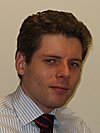 | |
|
Save valuable battery life with
Linux power management Aschwin Marsman (MontaVista) | ||
In this presentation power management fundamentals will be discussed and how you can design for power management in a Linux environment. A five step guide will be shown which can be used when designing for power management. Aschwin Marsman is working with Linux since 1993 and with UNIX since 1990. He is working as a software engineer in technical environments: wafer steppers, cancer treatment, air traffic control, self checkout systems etc. He started aYniK Software Solutions in 2001 and is currently working for MontaVista as the solutions architect for the Benelux & UK. |
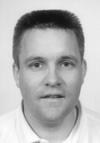 | |
|
How green is this OLPC's XO? Marten Vijn | ||
|
Talking about the environment is not only talking about consuming power. In this presentation we are going to look at the ecological footprint of this laptop, and resources used in the factory and production. At the end of the 90's an growing interest emerged in computer
networking and free software. In 2000 he migrated an office environment
to Debian GNU/Linux for a cultural center. Marten organized several
linux install parties in 2001. |
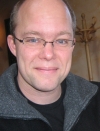 | |
| Vereniging NLUUG info@nluug.nl |
postbus 8189 6710 AD Ede |
